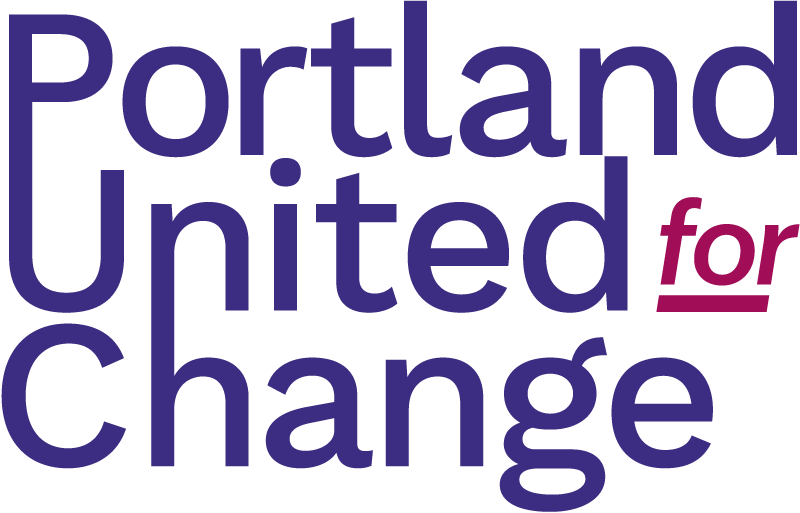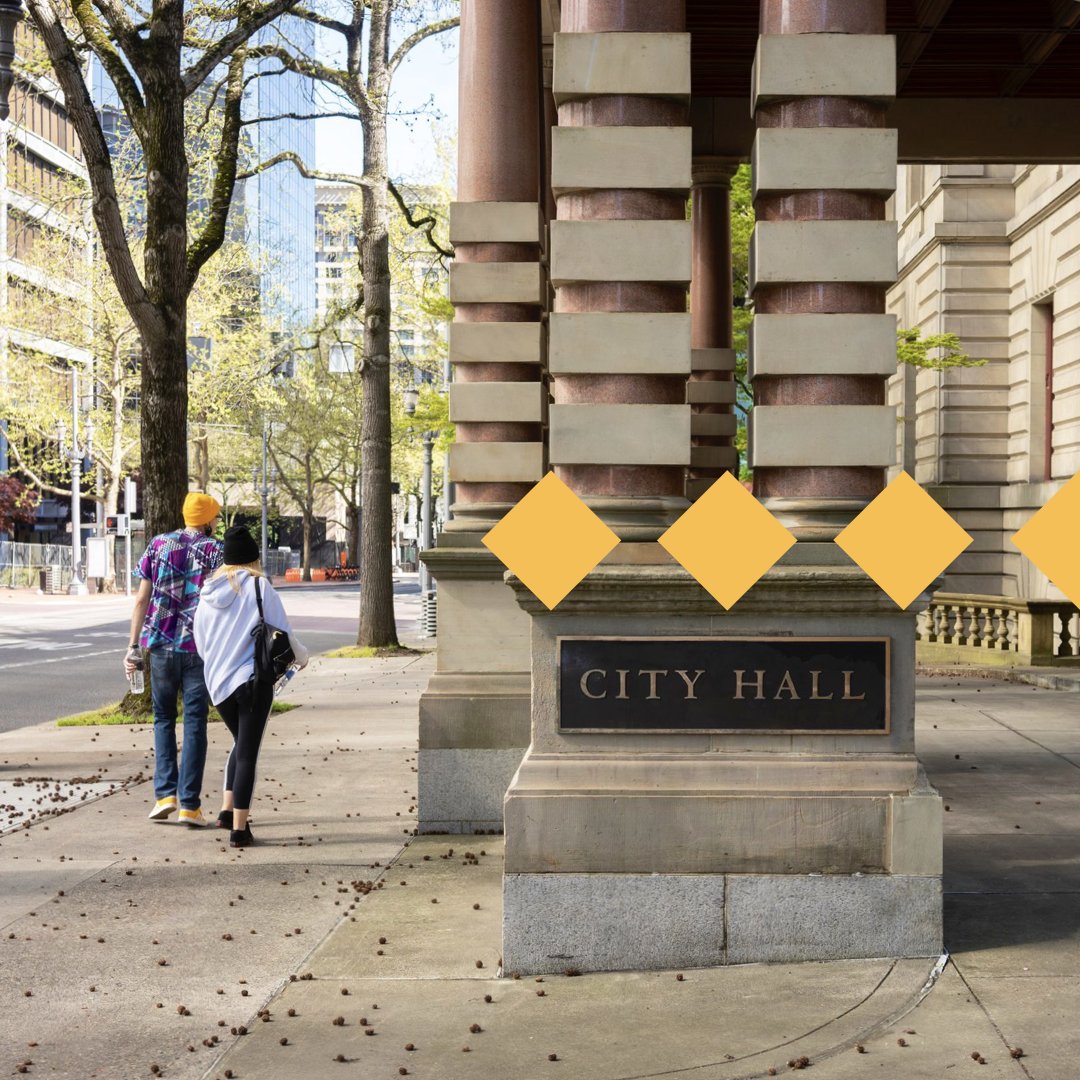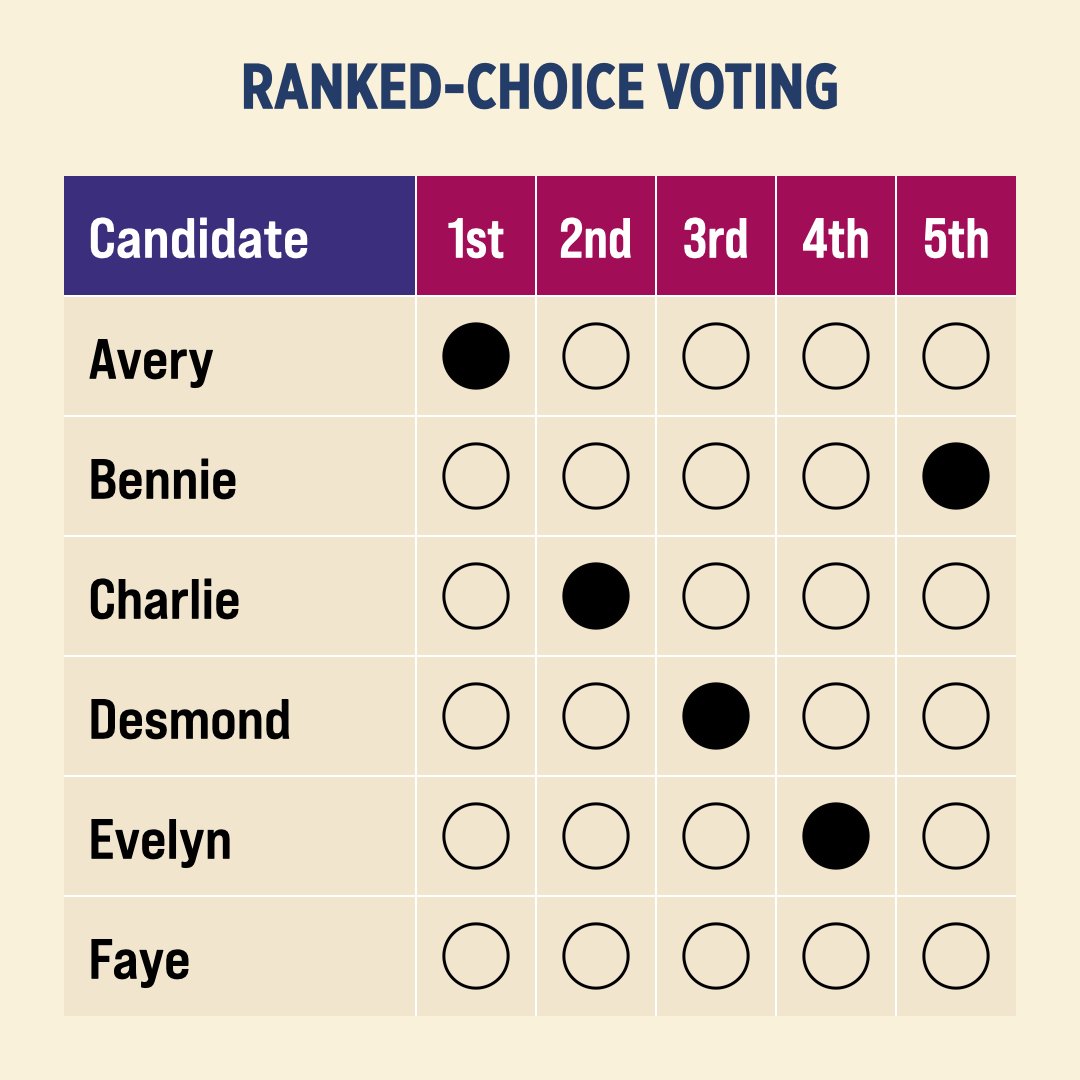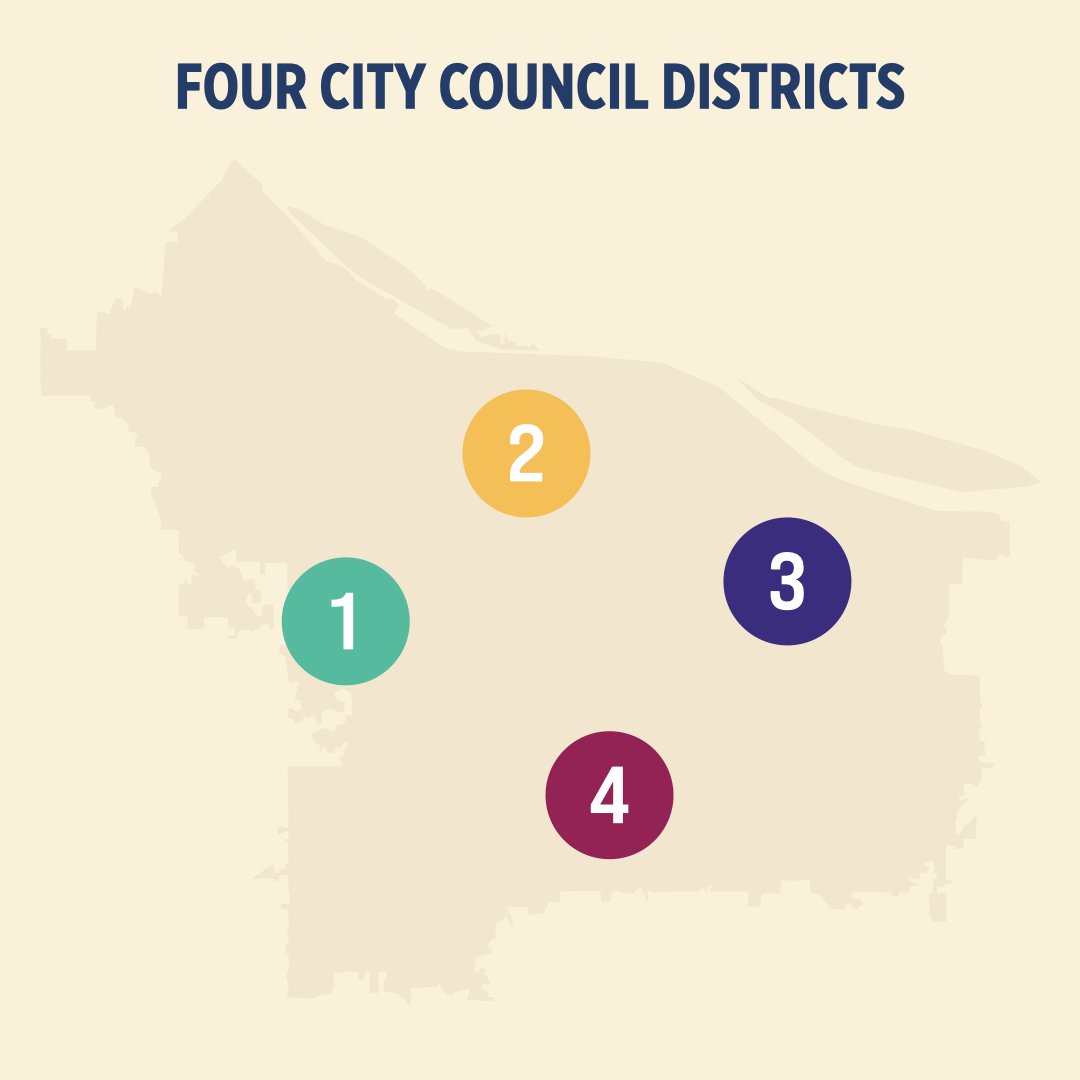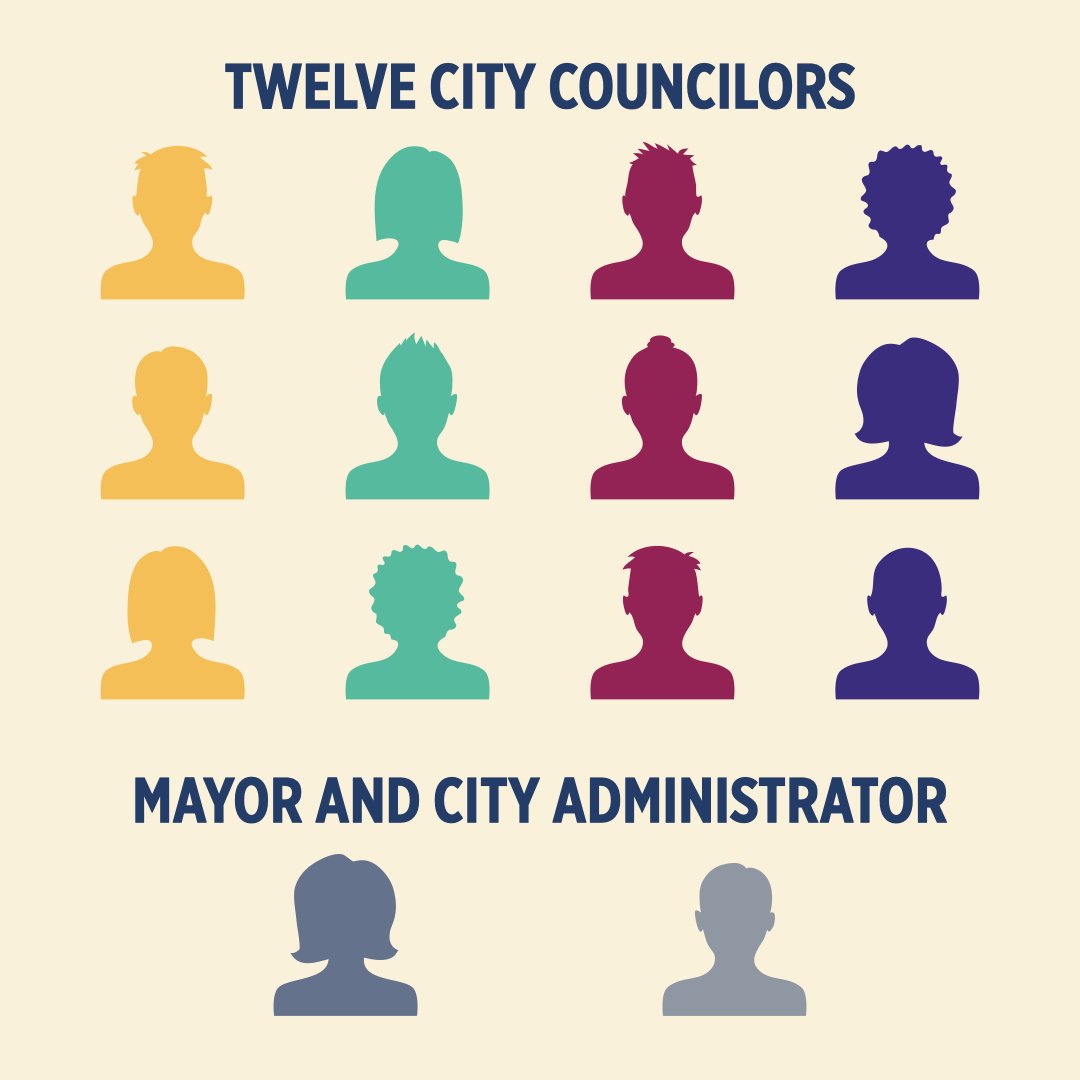The change we need
Portland United for Change is a coalition in support of meaningful and comprehensive change to Portland’s government and electoral systems. We came together in 2022 to pass Measure 26-228, a City of Portland ballot measure that makes the following changes:
Allow voters to rank candidates in order of preference on the ballot.
Establish city council districts so that our elected officials are accountable to their communities.
Make government more effective and transparent through professional city management.
58% of Portland voters said yes to Measure 26-228 to adopt this vision.
The Portland United for Change coalition continues to support civic engagement, voter education, and implementation of the reforms.
Portland United for Change is a 501(c)(3), nonpartisan fiscally-sponsored project of the United Way of the Columbia-Willamette. We are not affiliated with the City of Portland or Multnomah County.
Read on for a closer look at Portland’s charter change:
More Voice, More Choice.
Whether we’re young or old, renter or homeowner, Black, white, or brown, every Portlander has the right to vote for leaders who represent our values and communities. Measure 26-228 will give all Portlanders more voice and more choice in our elections by allowing us to rank candidates in order of preference. If your first choice does not get enough votes to win, your vote will be automatically counted for your next choice. You can rank just one, a few, or all candidates. That gives us all a seat at the decision-making table.
VIDEO (1 min 27 sec) - Ranked choice voting explained >>>
Want to go deeper? The national think tank on democracy reforms FairVote offers detailed policy and history about proportional ranked choice voting. They say it best: “Proportional ranked choice voting is the gold standard … It ensures both majority rule and fair representation, while giving voters more choices and a more empowering way to vote.”
In Alaska, where ranked choice voting is used statewide, voters In August 2022 rejected far-right Sarah Palin in favor of Mary Peltola, the first ever Alaska Native in Congress. This example shows that ranking candidates helps prevent extreme candidates and supports diverse representation.
City Hall for All.
No matter what part of Portland we live in, our city government should represent all of us. Measure 26-228 will establish four City Council districts, with three councilmembers in each district who are accountable to their constituents.
When city council members are elected citywide, some regions like East Portland do not get fair representation or the same quality of city services. But when council members represent a specific geographic area, people living in their district know who to contact for help and can hold their elected officials accountable.
With multiple council members representing a district, elected officials can work collaboratively with each other and communities to effectively find solutions to the problems we face. Council members will have a better understanding of what their district needs and how to solve local issues.
VIDEO (2 min 37 sec) - Ranked choice voting in multi-winner elections explained >>>
The mayor and city auditor will still be elected at-large (city-wide).
The City that Works for Everyone.
Under the new system, a professional city administrator will be accountable for managing day-to-day city operations. That administrator will report to the mayor. The city administrator will be solely focused on delivering the services our city needs — from fixing potholes to approving building permits to coordinating outreach for people in need.
City council members will no longer manage city services. With this new approach, the City Council will be more accessible to the community and can more thoughtfully connect with constituents and work together with community to develop solutions. This measure balances power between the mayor and council.
Portland needs to streamline and coordinate operations to effectively address the city’s pressing challenges like public safety and homelessness. Measure 26-228 will lead to a city that works — for everyone.
How did we get here?
Every 10 years the City Council appoints 20 Portlanders to review the City Charter and recommend changes. The most recent Charter Commission met from 2020-2022 and engaged Portlanders in a conversation about how our City can best respond to our diverse communities’ needs
Drawing on community input from thousands for Portlanders, they drafted a proposal to reform the City government. After holding public hearings in Spring 2022, the Charter Commission voted 17-3 on June 14th to send this comprehensive reform to Portland voters on the November 2022 ballot. A broad coalition of supporters, including community-based organizations, labor, small businesses, and civic organizations came together to communicate with voters about the importance of these changes.
Portland voters passed Measure 26-228 with 58% of the vote. The measure won majority support in 80% of Portland’s precincts.
After passage, the Independent District Mapping Committee developed and adopted the four city council districts, and an independent Salary Committee set the salary and compensation expectations for the new City Council, Mayor, City Administrator, and Auditor positions. The first elections to use the new system will be in Fall 2024. Since passage of the measure, the City of Portland has been restructuring to prepare for the new system that will begin on January 1, 2025.
